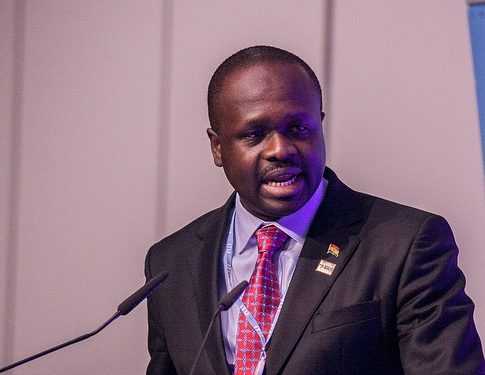Vetting of Defence Minister-Designate Delayed Amid Bribery Allegations
The vetting process for Dr. Edward Omane Boamah, the Defence Minister-designate, faced an unexpected delay on Tuesday, January 28, 2025, following allegations of bribery raised by private legal practitioner Oliver Barker-Vormawor. The Appointments Committee was forced to pause its proceedings to address the claims, which have sparked heated debates among its members.
The controversy stems from a social media post by Barker-Vormawor on Friday, January 24, in which he accused committee members of accepting bribes from ministerial nominees in exchange for approval. This allegation prompted a lengthy deliberation among both majority and minority members of the committee on how to proceed.
Minority Calls for Halt to Vetting
Members of the minority caucus argued that the integrity of the committee had been compromised and insisted that the vetting process could not continue until the allegations were thoroughly investigated. Frank Annoh-Dompreh, the Nsawam Adoagyiri MP, emphasized the importance of safeguarding the committee’s reputation.
“Our intention is not to obstruct government business, but these allegations are serious and cannot be ignored. We value our reputation, and for that reason, we cannot proceed with the vetting today. If the majority does not value their reputation, the minority certainly does,” Annoh-Dompreh stated.
Majority Pushes for Continuation
In contrast, members of the majority caucus advocated for the vetting to proceed as scheduled, suggesting that the matter could be resolved separately. They argued that delaying the process would only hinder government business.
“We also care deeply about our reputation. Let us proceed with the vetting today, and the individual making these claims can present his evidence tomorrow,” a majority member countered in response to Annoh-Dompreh’s remarks.
Summoning Barker-Vormawor
To address the allegations, the committee summoned Barker-Vormawor to appear before them on Wednesday, January 29, 2025, at noon to provide evidence supporting his claims. The back-and-forth discussions delayed the vetting process by over an hour, leaving Dr. Omane Boamah waiting as the committee debated its next steps.
Scheduling Miscommunication Adds to Delay
Earlier in the day, the vetting process had already been postponed due to a scheduling miscommunication. Committee members had initially planned to begin the vetting at 9:00 a.m., but the nominee was informed via a letter that the session would start at 11:00 a.m. As a result, Dr. Omane Boamah was not prepared to proceed at the earlier time.
The committee apologized for the confusion and rescheduled the vetting for 11:00 a.m. However, the bribery allegations further disrupted the timeline, leading to an extended delay.
Committee Conclave to Decide Next Steps
Following the heated discussions, the committee suspended its sitting to hold a private conclave. The purpose of the meeting was to determine whether to proceed with Dr. Omane Boamah’s vetting or to postpone it until the allegations were resolved.
The outcome of the conclave remains unclear, but the incident has cast a shadow over the vetting process, raising questions about transparency and accountability within the Appointments Committee.
Conclusion
The delay in vetting Dr. Edward Omane Boamah highlights the challenges of balancing efficiency with integrity in government processes. As the committee works to address the bribery allegations, the focus remains on ensuring that the vetting process is conducted fairly and transparently, without compromising the credibility of the institution or its members.
